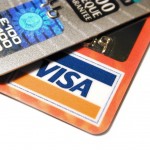 There has been a lot of news around RushCard the past couple of weeks, as their cardholders–many who are living paycheck to paycheck–weren’t able to access their money due to a payments processing glitch. Obviously, this was a huge disaster, for the cardholders, RushCard, and perhaps not so good PR for the prepaid card industry.
There has been a lot of news around RushCard the past couple of weeks, as their cardholders–many who are living paycheck to paycheck–weren’t able to access their money due to a payments processing glitch. Obviously, this was a huge disaster, for the cardholders, RushCard, and perhaps not so good PR for the prepaid card industry.
The Detroit Free Press reported: “No doubt, many will use this crisis as a time to criticize the prepaid card industry and some of the risks associated with not opting for a traditional checking and savings account. We’re hearing about class action suits as well.”
It’s much easier to point the finger when systems fail. The focus here should be on whether systems may be improved so that such a catastrophe doesn’t hit the most vulnerable again. It’s also easy to dish out advice that everyone should have a personal relationship with a bank, have a checking account and savings account, and avoid relying on such products as prepaid, but this does not provide a viable solution for many people.
Consumer protections on prepaid card accounts (products) have long been in the making. It has been nearly a year since the CFPB had released its proposed rules for prepaid which would extend Reg E protections, including error resolution and fraud and loss protections.
Arguably, even Reg E’s error resolution and fraud and loss protections don’t take care of the entire problem when banking and financial systems fail–10 days to gain access to money to pay for food and medication isn’t going to cut it. I’m curious to see what answers come from the RushCard debacle. Will it be business as usual in that there continues to be a two-tiered system where one group has access to credit and the other does not? Will there be space for development of new products and services to bridge this gap?
